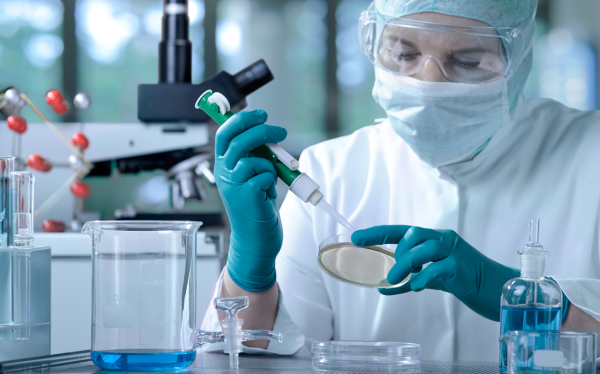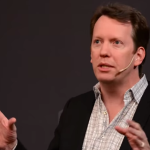Stem Cell Research and ‘Science vs. Religion’
by Joe Heschmeyer
Filed under Christianity and Science
A 2005 New York Times article begins:
"When Donald Kennedy, a biologist and editor of the eminent journal Science, was asked what had led so many American scientists to feel that George W. Bush's administration is anti-science, he isolated a familiar pair of culprits: climate change and stem cells. These represent, he said, 'two solid issues in which there is a real difference between a strong consensus in the science community and the response of the administration to that consensus.'"
There's a world of difference between Kennedy's two examples. For climate change, he's alleging that the Bush administration ignored or misrepresented the data in order to advance their political agenda. If true, that's anti-science. But for stem-cell, the Bush administration didn't deny that stem cell had medical promise. The argument wasn't that we couldn't do it, but that we shouldn't. As this editorial from Wired notes:
"President Bush’s stem cell policy may have been restrictive and misguided, but it wasn’t anti-science.
In the wake of Obama’s decision to lift Bush’s funding ban, many scientists are celebrating the freedom of science from ideology. Their relief is understandable, but the rhetoric is disturbing.
The Bush administration didn’t skew stem cell research like it did environmental science: It simply said it wasn’t right."
That's exactly right. Saying we shouldn't do something isn't "anti-science," since science can't, and doesn't, answer questions of should and shouldn't: those are moral and ethical questions, beyond its scope. But just because the questions are beyond the scope of science doesn't mean that science shouldn't be bound by them:
"There are good reasons why society puts ethical boundaries on science.
The Nuremberg code is the best-known example of this. Shocked by the horrors of Nazi science, the civilized world agreed that tests should never again be conducted on people who hadn’t agreed to take part, and that test subjects should not be knowingly harmed.
The Nuremberg code was invoked by activists outraged when the Bush administration, at the chemical industry’s urging, proposed tests of pesticides on pregnant mothers and children. They weren’t being anti-scientific. They were being humane."
Exactly. The Tuskegee Experiment certainly advanced science, but it was so brutally cruel and inhumane that we shake our heads at the thought that this could have been done to human beings, here in America. Someday, we'll likely do the same at the thought of destroying the bodies of unborn children for science. The Wired editorial concludes:
"As ideology, Bush’s restrictions on embryonic stem cell funding were legitimate.
They represented a moral objection to the destruction of embryos by people who believe that life begins when sperm meets egg.
It’s not an objection shared by everyone. But characterizing conscientious objectors as anti-scientific is dangerous.
'No thinking person should promote a science that claims to be value-free,' said Murray. 'There are plenty of experiments that would be scientifically interesting that we simply won’t do because of legitimate ethical concerns about how we treat the human subjects of research.'
Most Americans now support research that Bush stifled and Obama will fund.
But there will be plenty of cases in the future when the aims of science — or, to be more precise, certain scientists — conflict with widely held values. And if the legacy of the stem cell debate is to label all conscientious objection as anti-science bias, it will be a toxic legacy indeed."
This is a great point. In fact, the one mistake the editorial makes is in treating the question of when life begins as if it were a moral or ethical question. It's not, or at least, not primarily. It's a scientific question. And science is quite clear on it: life begins at conception. In that scientific understanding is one which informs our policy actions: for example, it's illegal to destroy fertilized bald eagle eggs, because those are baby bald eagles. In fact, it's the proponents of ESCR are the ones who are anti-science, in this sense: they purposes ignore or misrepresent the scientific data that embryos are human beings, unique members of the species homo sapiens, with DNA and epigenetic material distinct from both zygotes and both parents.
In fact, if one familiarizes oneself with the arguments within the Bush and Obama Administrations on the question of ESCR, it's clear which side is the thoughtful and scientific side, and which embraces "progress" at any price. As the Hastings Center notes, Dr. Leon Kass, former head of Bush's President's Council on Bioethics, argued "that bioethics should define societal goals or ends before we decide whether to pursue various types of biotechnology," and understood the need to keep ethical considerations at the forefront in the midst of scientific pursuits:
"As Kass wrote nearly 40 years ago, we must begin 'with a serious deliberation about our ends and purposes' in biomedical technology, because 'it is indeed the height of irrationality triumphantly to pursue rationalized techniques while insisting that ends or purposes lie beyond rational discourse.'
As an example, the first sentence of one of the council’s publications asks: 'What is biotechnology for?'"
Now, Dr. Kass and the rest of the Council weren't "anti-science," obviously. Kass has a doctorate in biology from Harvard, and did molecular biology research at the National Institutes of Health before entering the field of bioethics. But for asking these questions, the entire President's Council was disbanded by the Obama Administration, and publicly mocked by his team:
"A White House press officer told The New York Times that the council was being disbanded 'because it was designed by the Bush administration to be 'a philosophically leaning advisory group' that favored discussion over developing a shared consensus.' Obama will appoint a new bioethics commission that “offers practical policy options.”
The article quotes Alta Charo as saying that the Bush council 'seemed more like a public debating society' and that a new commission should focus on helping the government form ethically defensible policy."
Charo's leering is disturbing: she's playing the Parker Selfridge to Kass' Dr. Augustine (that's an Avatar reference, folks), demanding Kass and Co. shut up with their silly "ethical concerns" so we can do what we want to do.
The Irrelevance of Embryonic Stem Cell Research
Now, the entire field of embryonic stem-cell research may prove to be completely extraneous. That is, adult stem cells, with a few modifications, appear to be able to do everything embryonic stem cells can do, and there's no need to kill babies to get them. From the Washington Post:
Scientists have invented an efficient way to produce apparently safe alternatives to human embryonic stem cells without destroying embryos, a long-sought step toward bypassing the moral morass surrounding one of the most promising fields in medicine.
A team of researchers at the Harvard Stem Cell Institute in Boston published a series of experiments Thursday showing that synthetic biological signals can quickly reprogram ordinary skin cells into entities that appear virtually identical to embryonic stem cells. Moreover, the same strategy can then turn those cells into ones that could be used for transplants.
"This is going to be very exciting to the research community," said Derrick J. Rossi of the Children's Hospital Boston, who led the research published in the journal Cell Stem Cell. "We now have an experimental paradigm for generating patient-specific cells highly efficiently and safely and also taking those cells to clinically useful cell types."
Scientists hope stem cells will lead to cures for diabetes, Alzheimer's disease, spinal cord injuries, heart attacks and many other ailments because they can turn into almost any tissue in the body, potentially providing an invaluable source of cells to replace those damaged by disease or injury. But the cells can be obtained only by destroying days-old embryos.
[This isn't true: the Post writer is confusing stem cell research, generally, with "embryonic stem cell research," specifically, even though the entire article is about how embryonic stem cell research isn't the only kind of stem cell research, and in fact, not even the most promising.]
The cells produced by the Harvard team, known as induced pluripotent stem cells, or iPS cells, would avoid that ethical objection and could in some ways be superior to embryonic stem cells. For example, iPS cells could enable scientists to take an easily obtainable skin cell from any patient and use it to create perfectly matched cells, tissue and potentially even entire organs for transplants that would be immune to rejection.
Let this sink in for a moment. One of the arguments opponents of ESCR raised was that it wasn't necessary: that doubling-down on other forms of stem cell research, which don't require destroying embryos, would be able to produce the same results as ESCR. It's increasingly apparent that this argument was correct. And yet, ESCR continues. In fact, even the Harvard team using iPS cells still does ESCR, just to compare the two:
Rossi and other researchers, however, said that embryonic stem cells are still crucial because, among other things, they remain irreplaceable for evaluating alternatives.
"The new report provides a substantial advance," said National Institutes of Health Director Francis S. Collins. "But this research in no way reduces the importance of comparing the resulting iPS cells to human embryonic stem cells. Previous research has shown that iPS cells retain some memory of their tissue of origin, which may have important implications for their use in therapeutics. To explore these important potential differences, iPS research must continue to be conducted side by side with human embryonic cell research."
That's amoral science. No longer is the argument that ESCR is needed to save lives: it's increasingly obvious that iPS cells can do so as well. Now, it's just a question of curiosity: if we're going to say iPS is as good as ESCR, shouldn't we keep doing them both to compare? That's disgusting, given that ESCR harvests dead unborn children.
Related Posts
Note: Our goal is to cultivate serious and respectful dialogue. While it's OK to disagree—even encouraged!—any snarky, offensive, or off-topic comments will be deleted. Before commenting please read the Commenting Rules and Tips. If you're having trouble commenting, read the Commenting Instructions.













